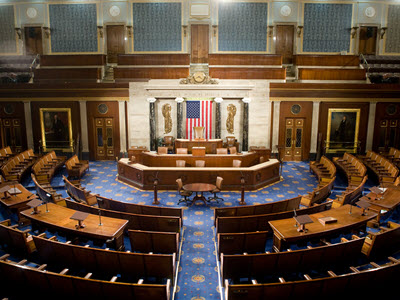Congressional Briefing Series
Key Issues in the Indo-Pacific for the 117th Congress
This is the introduction to a series of seven briefs on key issues in the Indo-Pacific for the 117th Congress.
Briefs in this Series
The Role of Congress in Managing the U.S.-China Relationship
Benjamin Lee and Jeremy Rausch
Bolstering U.S. Engagement in the Indo-Pacific
Rachel Bernstein
Establishing a Trade Policy That Benefits the United States
Doug Strub
Restoring U.S. Leadership in Human Rights
Melissa Newcomb and Eliza Young
A Roadmap for U.S. Technology and Innovation Policy
Jonathon Marek
Nuclear Challenges in the Indo-Pacific
John S. Van Oudenaren and Olivia Truesdale
Green Growth as a Catalyst for Transitioning to Clean Energy
Ashley Johnson and Thomas Lutken
Introduction
The 117th Congress has an opportunity to shape U.S. policy toward the Indo-Pacific in ways that will define not just the future of U.S. relations in the region but the nature of the global order. The seven essays in this briefing series examine U.S.-China relations, alliances and partnerships, trade, human rights, technology and innovation, nuclear proliferation, and energy transitions. The purpose of this series is to identify key issues in the Indo-Pacific for members of Congress and survey the potential policy options for addressing these challenges. While the issues explored are by no means comprehensive, several overarching themes are threaded throughout the series. These include the critical role of innovation, the need for multilateral and coordinated action, and the importance of continued U.S. leadership.
The pressing issues facing the United States range from trade to energy policy, from nuclear security to human rights. Looming over many of these issues is the increasingly complex and dynamic strategic competition with China. The United States’ ability to succeed in that competition hinges on how it manages and shapes developments in each of these areas. Congress has a critical role to play in this process.
Three specific areas explored in this briefing series will undergird the United States’ ability to be competitive economically. Over the next few years, Washington will navigate continuing domestic skepticism about the benefits of globalization to re-engage trade efforts in the Indo-Pacific, even as the region has moved forward on several multilateral agreements without U.S. leadership or even participation. Washington simultaneously faces an urgent need to create and implement a proactive technology and innovation strategy to remain a global technology leader. Furthermore, U.S. policymakers will need to leverage opportunities for innovation and market growth that are being created in the transition to lower-carbon energy sources.
In addition to these economic factors, challenges in the human rights realm will test the United States’ resolve in upholding a values-based order, while developments in nuclear capabilities and arms control from Russia, China, and North Korea will have a significant impact on regional stability and peace. The United States will need to cooperate with like-minded global partners to achieve its goals in many, if not all, of these areas. How it navigates the diverse interests of regional partners and overcomes deep skepticism about U.S. commitments will determine whether these strategic partnerships will be effective.
Given the range of domestic concerns and short-term issues, Congress’s ability to prioritize these foreign policy challenges in the Indo-Pacific and take thoughtful action will affect the viability of long-term U.S. interests around the globe.
Alison Szalwinski
Vice President of Research
The National Bureau of Asian Research


